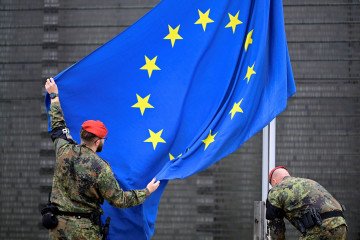- Category
- World
Who is Russian Occult-Nazi "Philosopher” Alexander Dugin, Also Called “Putin's Ideologist”?
-e27d239f9fa349063a31b7522d53f44f.jpeg)
Russian "philosopher" Alexander Dugin is becoming increasingly known globally after his interview with Tucker Carlson. This man is often called one of Vladimir Putin's main ideologists. Despite his reputation as an occult far-right satanist, Dugin's influence seems to have begun to spread beyond Russia.
Donald Trump's administration has invited far-right podcaster Jack Posobiec to accompany U.S. Defense Secretary Pete Hegseth on his first foreign trip to Europe, the Washington Post reported, citing documents and sources. It appears that Posobetz may have influence with high-ranking officials in the United States.
That said, Posobetz co-wrote the MacronLeaks disinformation campaign of 2017. Back then, two days before the French presidential election, Emmanuel Macron's correspondence was leaked online, also hacked by hackers close to the GRU, and real emails were mixed with fakes.
During this campaign, Posobets promoted books by “Russian world” ideologue Alexander Dugin on social media. These books included “Foundations of Geopolitics,” where Dugin urges Russian authorities to exploit sectarian and racial divisions in the United States to lead America to collapse.
The media has always doubted Dugin's real influence on Putin, but recently, more evidence has emerged supporting this claim.
Introducing Dugin, Carlson says that in the West, the “philosopher” is called "Putin's brain," and his ideas are "deeply offensive to some people." "Dugin is not a close advisor to Vladimir Putin. He is a writer who writes about big ideas. And for that, his books have been banned by the Biden administration in the US; you can't buy them on Amazon," Carlson notes.
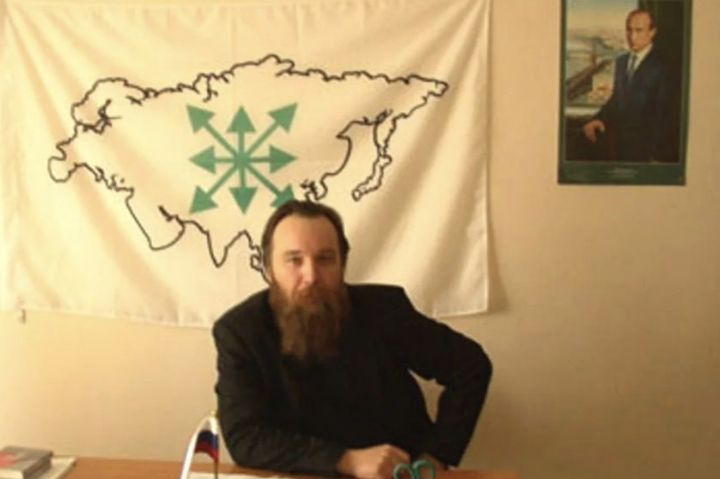
The son of a GRU general and a doctor, Dugin joined the literary circle of writer Yuri Mamleev in the 1980s, where they studied esotericism. They were fascinated by the mystical traditionalism of René Guénon and the neo-fascism of Italian baron Julius Evola. Hitler's ideas were also discussed, along with a general interest in the mystical aspects of Nazism.
But Dugin's interest in fascism wasn't limited to esotericism. In 1988, he joined the "Pamyat" society, an organization of militant nationalist anti-Semites. In the early 1990s, Dugin began calling himself a “Eurasianist,” following a political and theological movement of Russian emigres who saw Russia's future after the fall of communism in rejecting democracy and the market economy.
Later, Dugin created his own "Eurasian Youth Union," actively recruiting young people to participate in his Nazi-occult rituals. In 2011, at a summer camp, his "EYM" staged an occult mystery, "Finis Mundi" or "End of the World."
His daughter Darya played the role of a voluntary victim who self-immolated for Russia's salvation. As she burned, a male voice proclaimed, "Baptize with fire, Rus! Burn through the fire and save your diamond from the black crucible!"

In 2022, Darya died in a car explosion while returning from the "Tradition" festival.
At her funeral, her father did not appear overly upset and continued his rhetoric: "One of her first words, which we, of course, taught her, was 'Russia,' our state, our people, our empire."
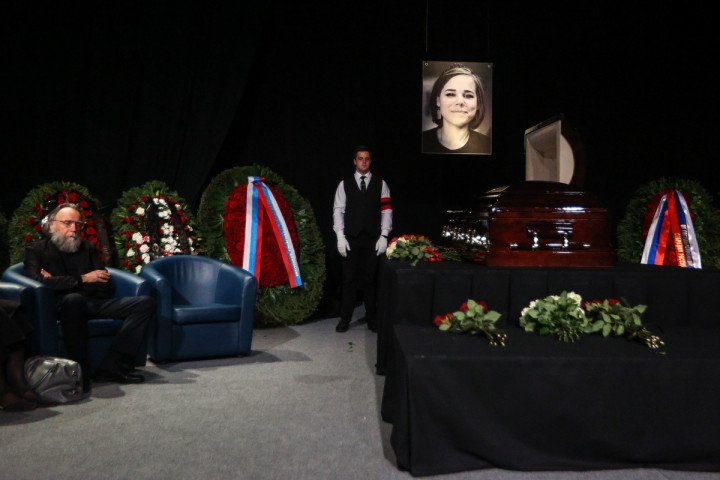
He added that his daughter would have wanted people to glorify “Russia” and “protect Orthodoxy and the Russian people” after her death—and not her. “Because she died for the people, for Russia on the front line, and the front is here. She lived for victory and died for victory—our Russian victory! Our truth, our Orthodoxy, our state," Dugin added.
At the same event, Russian State Duma deputy Slutsky, either on his initiative or prompted by Darya's father, used the Nazi slogan "One country, one president, one victory!" in his speech at the funeral. This phrase resembles the slogan "Ein Volk, ein Reich, ein Führer" or "One people, one empire, one leader," widely used in Nazi Germany.
Kyiv declared Dugin persona non grata as early as 2006. Even then, Dugin was actively promoting the idea of destroying Ukraine as a state. Back then and still now, he considered his "mission" to create a "Eurasian superstate," with Russia as its center.
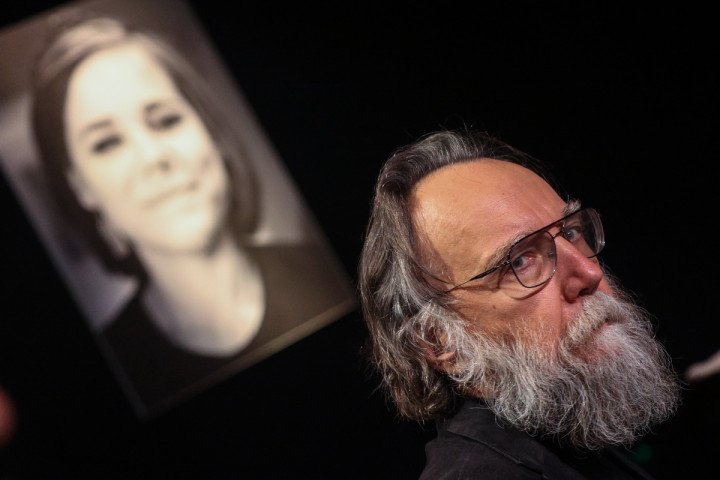
According to Dugin's "philosophy," neighboring countries cannot exist as separate, independent states. They must dissolve, becoming part of this new superstate. Any national ideas and expressions obviously hinder this vision.
It is also interesting how Dugin envisions "ideal" life in such a state. From his statements, it is clear that he criticizes urban life: "What urban civilization are we proud of? It is a territory of debauchery and degeneration, detachment from roots and loss of tradition," says Dugin.
He notes that people from Russian villages are sacred. "Those who live there are people with roots and identity," says the philosopher, who evidently rarely visits Russian villages suffering from violence, alcoholism, and unemployment over the past 30 years.
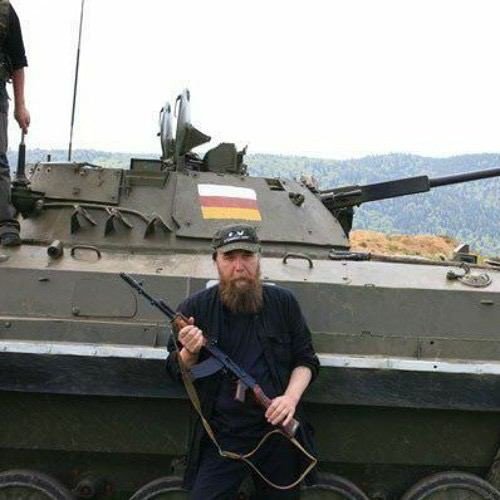
One of Dugin's programmatic articles ends with, "Russia will either be Russian, that is, Eurasian, the core of the great Russian world, or it will disappear. But then it is better for everything to disappear," hinting at the end of the world.
This phrase largely encapsulates Dugin's "philosophy," which may appeal to the Russian president. A totalitarian country that recognizes neither international law nor humanism, reviving totalitarianism within the country, must spread it to neighboring countries. The expansion of torture, violence, and degradation into the civilized world under the guise of "great ideas."
-206008aed5f329e86c52788e3e423f23.jpg)
-27ef304a0bfb28cb4215e5deede4a665.png)
-46f6afa2f66d31ff3df8ea1a8f5524ec.jpg)

-605be766de04ba3d21b67fb76a76786a.jpg)
-2c683d1619a06f3b17d6ca7dd11ad5a1.jpg)

